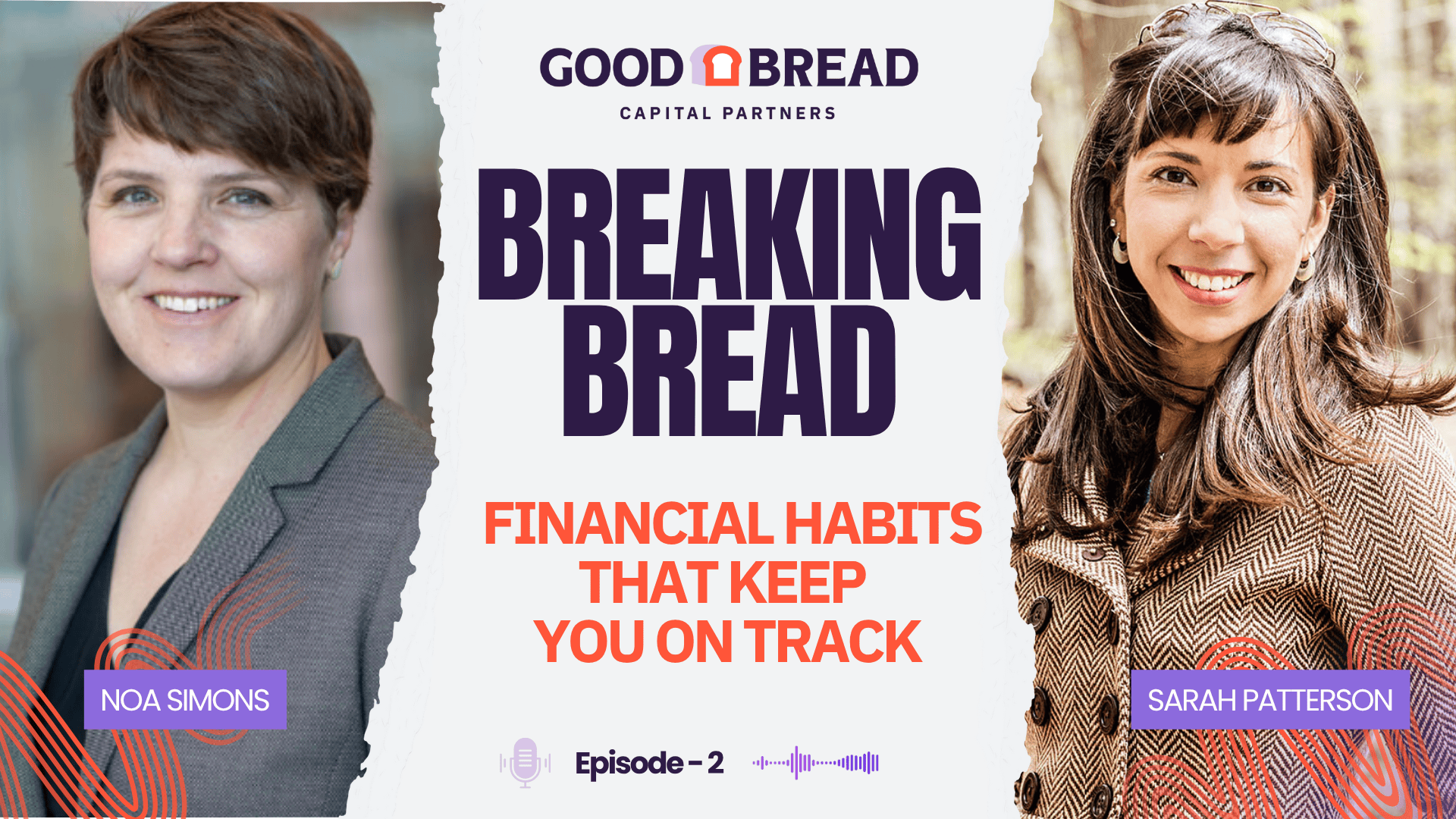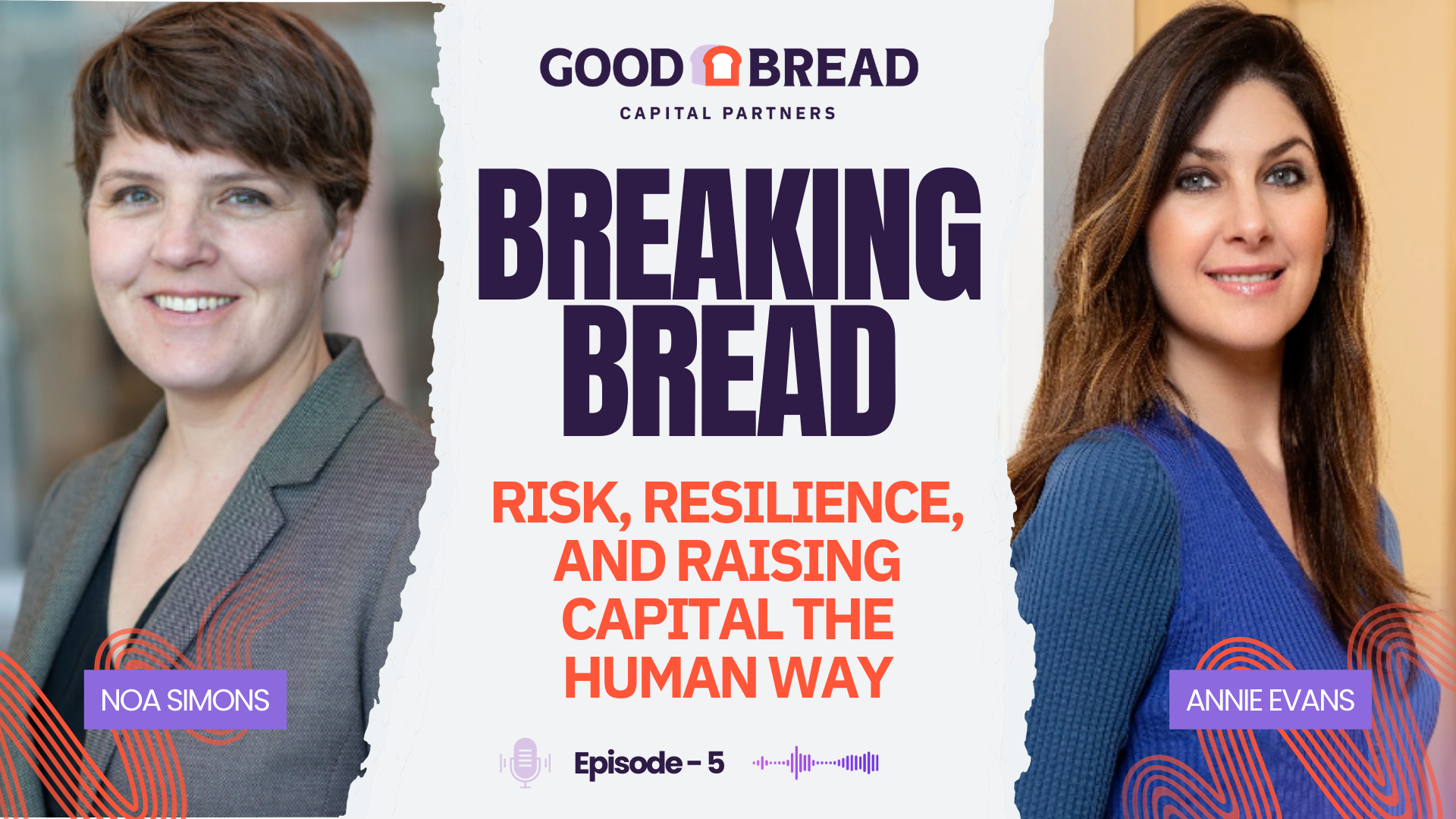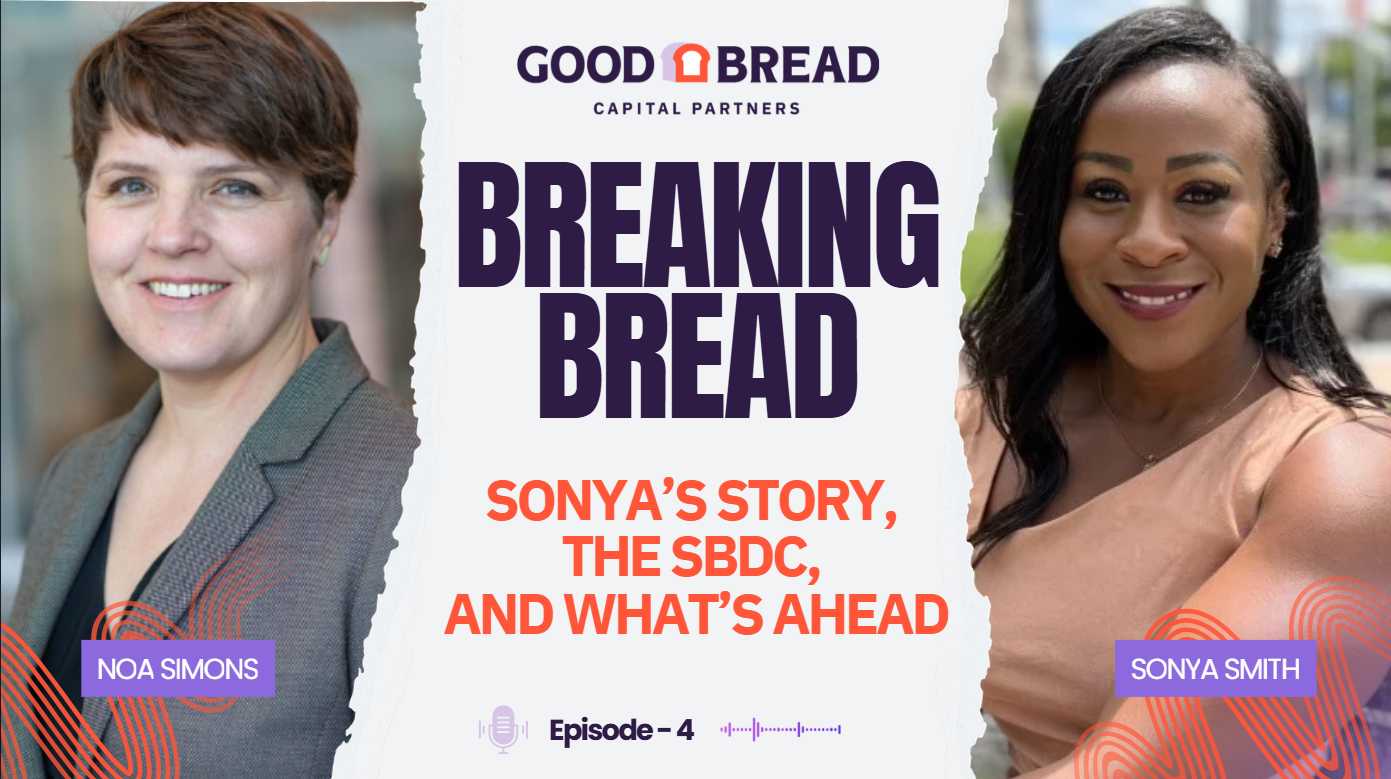After the success of our debut Breaking Bread episode, we’re back for round two, this time diving deeper into the everyday financial habits that keep small business owners thriving instead of just surviving.
In this episode, GoodBread Co-Founder and CEO Noa Simons sits down again with Sarah Patterson, a seasoned fractional CFO and long-time advocate for bringing clarity, strategy, and calm to the often-chaotic world of business finance.
Together, they unpack the practical routines that separate healthy, growing businesses from those running on fumes. They talk about rethinking your CPA relationship, keeping your budget alive as a decision-making tool, and building real habits that help your business stay resilient.
If you’ve ever felt overwhelmed by cash flow, taxes, or that gut-level “Am I even doing this right?” feeling, this conversation is for you.
TL;DR:
Stop winging it with your business finances. In this Breaking Bread episode, fractional CFO Sarah Patterson lays out five core habits that keep small business owners sane and solvent, from talking to your CPA quarterly to treating your budget like a mindfulness ritual. Her biggest truth bomb? Clarity is empowering. Your numbers aren’t scary once you understand what they’re telling you.

Running a small business means wearing a dozen hats, and “financial strategist” isn’t usually the one founders grab first. But as Breaking Bread host Noa Simons and returning guest Sarah Patterson discussed in this episode, mastering a few key habits can make or break your company’s long-term health.
Here are five essential financial habits every small business owner should build, plus a bonus takeaway about mindset that might just change the way you see your numbers.
Talk to Your CPA Quarterly (Not Just at Tax Time)
If you’re only talking to your CPA once a year, you’re leaving money on the table and walking blind into tax season.
According to Sarah, quarterly check-ins help you:
- Re-estimate your quarterly tax payments (since your business likely isn’t static year-over-year).
- Strategize around major purchases and investments to minimize tax impact.
- Stay compliant with changing payroll, ownership, or compensation rules.
“Timing matters,” Sarah says. “Don’t make assumptions about what’s deductible. Ask first, plan ahead, and stay proactive.”
Treat Budgeting as a Mindfulness Practice
Forget the corporate dread that comes with budgeting. Think of it as a yearly reset for your business. Sarah calls it “a mindfulness practice for your company.”
Every fall, take time to:
- Reflect on what worked and what didn’t.
- Set clear goals for next year.
- Align your budget with your strategy, not the other way around.
And yes, this applies whether you’re a solo founder or managing a 50-person agency. Budgeting isn’t about restriction; it’s about clarity.
As Sarah puts it: “A budget isn’t a spend-it-all license. It’s your roadmap.”
Keep Cash Flow Forecasts Alive (Not in a Spreadsheet Graveyard)
A cash flow forecast only works if you actually use it.
Profit and cash are not the same, and failing to anticipate cash shortages is one of the most common small business pitfalls.
Sarah recommends a rolling 12-month reforecast that updates regularly as your pipeline and revenue evolve. That means:
- Mapping out when money actually arrives versus when invoices go out.
- Accounting for loan infusions, taxes, and seasonal dips.
- Keeping a cash buffer (2–6 months of expenses is ideal).
In her words: “Profit is theory. Cash is survival.”
Measure Your Pipeline Like It’s Your Pulse
Your sales pipeline is the best early-warning system for your future revenue.
Sarah suggests tracking it visually, graphing deals by stage, with “discount factors” applied to each. For example:
- Proposal requested → 50%
- Proposal delivered → 60%
- Verbal agreement → 95%
Plot your pipeline versus actual sales every two weeks. When the pipeline dips but sales don’t rise, it’s time to take action. “Prediction is like a muscle,” Sarah says. “The more you flex it, the sharper your foresight becomes.”
Review Financials Regularly, Even When It’s Uncomfortable
Money anxiety is real. But ignoring your books is the fastest route to disaster.
Instead, make it a habit to:
- Check your cash position weekly.
- Review accounts receivable and payable biweekly.
- Monitor project budgets and burn rates monthly.
“You might not like what you see,” Sarah admits, “but clarity is empowering. When you know where you stand, you can make smart decisions instead of emotional ones.”
Bonus Habit: Shift Your Mindset from Expense to Investment
Perhaps Sarah’s most important insight is that how you talk about money shapes how you use it.
She’s noticed that successful owners think in terms of ROI, not just cost.
“If you call everything an expense, you’ll treat your business like something to be minimized,” she says. “If you see it as an investment, you’ll focus on what drives return.”
The GoodBread Takeaway
If there’s one message that resonated through the entire conversation, it’s this:
Clarity is empowering.
Whether it’s a quarterly CPA meeting, a monthly financial check-in, or a living budget that evolves with your goals, these small habits build control, confidence, and sustainable growth.
Because when you know your numbers, you’re not just running a business. You’re steering it.
Join the Conversation
We’d love to hear your thoughts on this episode. Subscribe on YouTube, leave a comment, and share the video with your community. Together, we can keep building conversations that matter.






